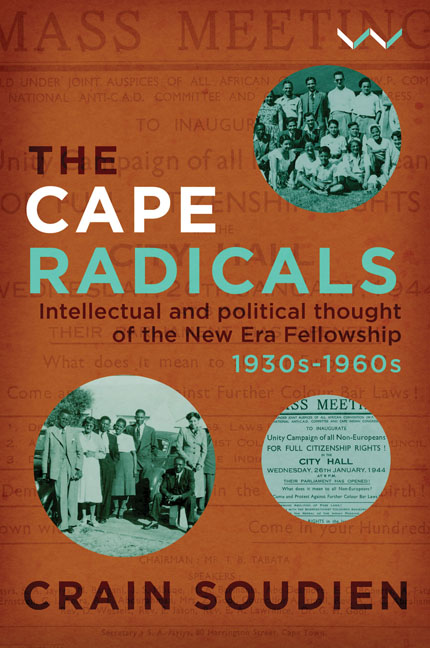Book contents
- Frontmatter
- Contents
- Acknowledgements
- Acronyms and Abbreviations
- Timeline
- Introduction
- 1 A Battle of Ideas
- 2 Planters of the Seed
- 3 ‘Anything under the Sun’: The Formation of the New Era Fellowship
- 4 ‘Honest, Sincere and Fearless’, 1937–1940
- 5 The Road to Emancipation, 1940–1953
- 6 A Cauldron of Conflict
- 7 Legacy
- Notes
- List of Illustrations
- Bibliography
- Index
7 - Legacy
Published online by Cambridge University Press: 29 October 2019
- Frontmatter
- Contents
- Acknowledgements
- Acronyms and Abbreviations
- Timeline
- Introduction
- 1 A Battle of Ideas
- 2 Planters of the Seed
- 3 ‘Anything under the Sun’: The Formation of the New Era Fellowship
- 4 ‘Honest, Sincere and Fearless’, 1937–1940
- 5 The Road to Emancipation, 1940–1953
- 6 A Cauldron of Conflict
- 7 Legacy
- Notes
- List of Illustrations
- Bibliography
- Index
Summary
Any discussion of the impact and significance of the New Era Fellowship (NEF) is almost indissolubly bound up with the Non-European Unity Movement (NEUM). The NEUM has been examined and written about in some detail by the major historians and commentators on the Cape Radicals and their period. Separating that critique out from what the NEF achieved is not easy.
What is indisputable about the NEF is that it seeded into South Africa's political and intellectual life a relatively small but deeply important legacy. In the 1940s and well into the 1960s its members established, especially in the Western Cape but also in the Eastern Cape − the heartland of what is now too automatically described as African National Congress (ANC) territory − structures that engaged powerfully with local communities. These structures were unashamedly about ideas. The leadership of the NEF was, as Ciraj Rassool has put it, intent on ‘taking the nation to school’. Their signature was of the intellectual-activist. It was not sufficient that people mobilised behind an idea; it was critical that they came to own it and to live it.
The attitude of the members of the NEF and its sister organisation – the NEUM – to their work was that it was necessary continually to seed ideas into people's minds to counter the racist and divisive ideology of the everyday. In 1943 Ben Kies had been very clear about this: ‘We must turn our faces to our people and we must be among them and with them and of them, teaching and leading them.’3 The Cape Radicals had many remarkable qualities but above all of them was the fact that they were intellectuals. Epistemology and the science of ideas were their tools of trade. They were people who unashamedly espoused and encouraged in people around them the desire to think. But they were also proponents of the idea that one had to live one's beliefs. The personal was political. Being fully human and demonstrating this humanness consumed them. They cultivated attitudes about relationships between people, about sex, about children, about social obligation.
This work was difficult, involving, as it did, more than simply winning political allegiance or proselytising in a narrow sense.
- Type
- Chapter
- Information
- Cape RadicalsIntellectual and Political Thought of the New Era Fellowship, 1930s to 1960s, pp. 163 - 174Publisher: Wits University PressPrint publication year: 2019



